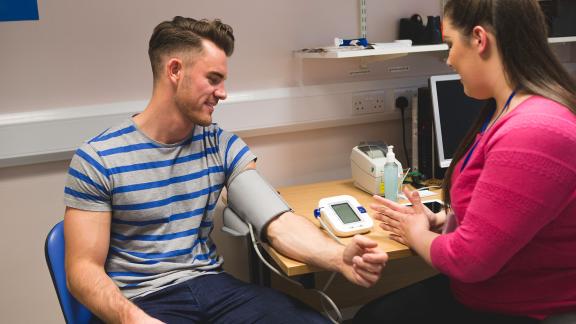'The future of general practice' report: what you need to know
Key points
- The Health and Social Care Select Committee (HSCSC) says that the crisis in general practice must be acknowledged and addressed. It takes aim at the policy direction, which although understandable given the falling number of GPs, has not struck the right balance between access and continuity of care. Primary care networks (PCNs) are yet to reach their potential and have a meaningful impact on the sustainability of general practice, while commitment to the partnership model must be reaffirmed.
- The HSCSC urges that action is taken to increase the GP workforce and make a career in general practice more appealing, through decreasing the administrative workload, remedying funding mechanisms that lead to areas being under-doctored, reforming pensions, and exploring models to limit GP partners’ personal risk. Action must also be taken to flip the balance between access and continuity of care. This includes the reinstatement of personal lists in the GP contract by 2030, continuity leads at PCN level, and continuity being measured at all levels from practice to nationally.
- The report is a welcome intervention to the policy and political narrative surrounding general practice. Strong and stable general practice is the foundation of primary care at scale, system working and the wider NHS; the recognition of the crisis facing GPs is therefore welcome.
- The recognition of PCNs’ potential is welcome. We urge the government to commit to PCNs beyond 2024, adopt the recommendations for reducing administrative or inappropriate workload, incentivise collaboration to produce efficiencies and to ensure integrated care boards (ICBs) create the environment for PCNs to flourish.
- The surface tension between continuity of care and access is rightly identified. However, access is a system-wide problem that requires a system-wide solution and, given workforce constraints, personal GP lists are not practicable. Attention should therefore be focused on improving informational and managerial continuity, as well as identifying the appropriate level of delivery for services based on the population health need, with access leads being appointed instead of continuity leads.

The Health and Social Care Select Committee has published its report following an inquiry to explore the future of NHS general practice. The inquiry examined the key challenges facing general practice over the next five years as well as the current and ongoing barriers to access to general practice.
What did the report say?
The HSCSC's report, The Future of General Practice, paints a sombre picture of general practice in crisis, with the government and NHS England neither acknowledging nor remedying the situation. This crisis is caused by a depleting GP workforce and ever-increasing demands on services from an ageing, more clinically complex population, resulting in the increased use of expensive locum doctors.
The report says that the pressures on general practice have led to access being prioritised over continuity of care, with GPs no longer holding their own patient list and patients being confused by the NHS-patient interface. The policy direction, whereby low complexity cases do not receive continuity from the same GP, is not supported. Instead, all patients should benefit from continuity of care, which should also be measured. Also, these access issues are more acute in deprived areas that already experience higher rates of ill health and the Carr-Hill formula should be replaced to remedy this.
It also says that the professional standing of general practice, which has delivered the majority of the COVID-19 vaccination programme, must also be restored through reaffirming the partnership model and exploring the viability of other options that limit personal risk and increase the attractiveness of partnership. The damage caused by rumours of reforming the model has also been specifically acknowledged. Further, the targets-driven and micro-management approach of the Quality and Outcomes Framework (QOF) and the Investment and Impact Fund (IIF) should be replaced with incentives that promote relationship-based care, beginning with GPs having their own patient lists.
The report states that the establishment of PCNs is welcome, but they have not yet made a meaningful impact on the future sustainability of general practice; instead exacerbating the issue of GPs only seeing the most complex cases and inequity of continuity of care.
The report’s recommendations
The report focused on key recommendations in four areas: access to general practice; continuity of care; general practice and new NHS organisations; and the GP partnership model.
Access to general practice
- Acknowledge there is a crisis in general practice and set out how NHS England and government will be responding to it.
- Commission a review into the short-term problems that constrain primary care.
- Provide funding for 1,000 additional GP training places per year and consider extending the GP training scheme to four years.
- Identify mechanisms to distribute GP trainees more equitably, ensuring under-doctored areas receive a balanced proportion of domestic and international GP trainees, as well as exploring how trainees can be incentivised to settle in the areas they train.
- Increase Additional Roles Reimbursement Scheme (ARRS) flexibility, allowing PCNs to hire they professionals they choose, based on local need.
- Provide standardised national training for receptionists.
- Uplift ARRS to support all costs or to provide weighted salaries. Staff should be employed on Agenda for Change terms and conditions costs.
- Reduce the administrative workload through focusing on the primary-secondary care interface, introducing e-prescribing in hospitals and encouraging integrated care systems (ICSs) to provide a reporting tool for GPs to report inappropriate workload transfer.
- Fund research into automating the reporting and coding of test results.
- Undertake a full review of primary care IT systems to improve the end-user interface.
- Support GP practices to offer more flexible working patterns to encourage them back into regular employment.
- Take action to address the bidding war for locums and establish requirements for a minimum fair share of administrative duties.
- Adopt the pensions recommendations set out in the HSCSC’s report Workforce: Recruitment, Training and Retention in Health and Social Care, and adopt measures to account for GP partners status as employers.
Continuity of care
- Acknowledge the decline in continuity of care, making it an explicit national priority to reverse this decline.
- Introduce a national measure of continuity of care, based on the St Leonard’s Index, that all GP practices should report on by 2024. It should be reported quarterly at practice, PCN, ICS and national levels.
- Continuity leads should be funded at PCN level, with specific uplifts for areas of high deprivation.
- Personal lists should be re-implemented in the GP contract from 2030, with 80 per cent of practices having returned to personal lists by 2027. Practices should be supported to achieve this.
- There should be limits on the personal list size, starting at 2,500 and reducing to 1,850. The list size should reflect levels of need in local populations.
General practice and new NHS models
- ICSs should simplify the patient interface by improving access, triage and referral across first-contact NHS organisations.
- QOF and IIF should be abolished and re-invested in the core contract, accounting for patient demographics.
- Outcomes measures should be prioritised through the focusing of data collection and analytical resource. Outcomes data should be provided to GPs.
- ICSs should implement gain sharing, enabling practices and PCNs to financially benefit when they reduce secondary care expenditure.
- The Carr-Hill formula should be revised to provide better weighting for deprivation. PCN funding should not be inadvertently restrictive for areas with high levels of need.
- Organisational support to GPs should be increased, including HR, data and estates management.
GP partnership model
- Commitment to the partnership model should be reaffirmed and better supported via the report’s recommendations. Other models of primary care provision should be enabled.
- The viability of the Scottish approach to GP premises should be explored. Further investment should be made available for the general practice estate.
- Plans for GP partners to operate as limited liability partnerships should be accelerated, and other risk-limiting options explored.
Analysis
The report’s emphasis on the challenges facing general practice resonate with the issues our members have consistently raised with us. General practice is operating in an extremely unstable environment, which is negatively impacting the development of PCNs and the ability of primary care to play an effective and meaningful role in their local place and system.
Strong and stable general practice enables primary care at scale
The acknowledgement that general practice is in crisis is welcome. Not only are patients struggling to access general practice due to capacity constraints – namely the lack of GPs –as we noted in our evidence submission to the inquiry, but this also has a knock-on effect on the stability of the wider NHS and system working. With PCNs being ‘the building blocks of ICSs’ it is vital that general practice, from which PCNs and many other at-scale providers have been formed, is supported to deliver its priorities and to aid transformation into the new models that the inquiry’s report rightly emphasises the potential of.
Primary care, and particularly general practice and PCNs, have been contending with an extremely difficult operating environment. Since 2019, general practice and PCNs have delivered the vast majority of one of the world’s fastest and most successful COVID-19 vaccination programmes. They have also embarked upon the transformation project of developing PCNs while contending with uncertainty over the future of PCNs beyond 2024, as well as signals that the partnership model will be reformed. It is therefore welcome to see the HSCSC recognising the destabilising effect this operating environment has had on general practice, as well as primary care’s role in the vaccination programme. As primary care continues to deliver COVID-19 vaccinations, reaching underserved communities in a way that other providers proved unable to do, it is vital that primary care is given access to a flexible workforce through being granted lead employer status.
We welcome the HSCSC’s commitment to strong general practice and the stability it provides, especially recognition of the inequitable regional distribution of GPs and the Global Sum’s inadequacy in accounting for deprivation, leaving fewer doctors in deprived areas who are simultaneously dealing with more complex cases. The focus on strengthening the GP trainee pipeline and ensuring partnership remains an attractive career route through exploring models that limit personal liability, is also welcome. GP partners hold vast amounts of both clinical and financial risk within the health system, often leading on innovations such as federations, and transformation projects such as PCNs, that have generated much-needed additional capacity in the system.
New models must be supported to reach their potential
The HSCSC’s recognition of the potential of PCNs and ICSs is welcome. The challenging operating environment has meant that PCNs, despite delivering all their planned service specifications and more, are yet to reach their potential. With their development being marred by extraordinary events and reduced capacity, it is vital that the government and NHS England commit to PCNs beyond 2024, providing stability and enabling forward planning. It is also vital that the same mistakes, which entrench inequitable service provision, are not replicated at the PCN scale. This includes ensuring that deprivation is adequately accounted for in PCN funding and that the IIF, like QOF for core general practice, incentivises better outcomes for patients as opposed to creating an additional administrative burden. Should any funding be removed from the IIF it must remain ringfenced, focused on improving patient outcomes through primary care at scale. It is also important to note that other models, including federations, have been providing clinical services and must be recognised as a key component of the primary care ecosystem.
Where the HSCSC recommends gain sharing for primary care reducing secondary care admissions, we go further and recommend better incentives to promote collaboration for secondary care
The HSCSC rightly focuses on the recommendations of Professor Claire Fuller’s stocktake of primary care integration, which sets out actions for systems to further integrate primary care. Despite being endorsed by all ICS leaders, implementation of the stocktake’s recommendations have been slow to start while there are issues with deployment of the mental health practitioner, which is within the gift of ICBs to resolve. The government and NHS England must therefore promote system working, which includes parity of esteem for all providers within the system. Where the HSCSC recommends gain sharing for primary care reducing secondary care admissions, we go further and recommend better incentives to promote collaboration for secondary care.
Ultimately, these new models are transformation projects. For PCNs, this means asking the same depleting and burnt-out workforce to undertake core general practice work, at a time of exceptionally high patient demand and political scrutiny, alongside leading transformation projects during (what has been) a global pandemic. Many of these are indeed extraordinary factors that lie outside the immediate control of policy makers. However, others are not and we fully support the HSCSC’s recommendation that the government commissions a report into the short-term problems that constrain primary care. We would welcome the opportunity to support the government with this review.
We urge that it is incumbent on ICBs to create the environment for PCNs to flourish
As we have previously argued, the success of ICSs will depend on the extent to which local leaders are able to lead. For primary care leaders, this includes freeing up time for them to take on and undertake these roles. We support the recommendations that NHS England and the government should increase the organisational support provided to GP practices with regards to back office functions, as well as providing adequate funding within the ARRS for training and supervision. Furthermore, the recognition that GPs must be given the ‘headspace’ to develop PCNs, and therefore contribute to system working, is welcome. We urge that it is incumbent on ICBs to create the environment for PCNs to flourish.
Access is a system issue and must be informed by population health need
The HSCSC rightly focuses on patient access and the benefits of continuity of care. Given workforce constraints within primary care it will not always be the case that continuity of care with a single GP is achievable in all circumstances. The focus should be on the appropriate scale of care delivery based on population health need, which is supported by managerial and informational continuity – as the HSCSC acknowledges - and provided by a multi-disciplinary team. We have already seen this approach adopted for group consultations for diabetes, for instance, but moreover in the vaccination programme, which used a higher scale of delivery than general practice to meet the need within the population, including reaching underserved communities. Crucially, this was underpinned by informational and managerial continuity and the best use of a multi-disciplinary team. This approach would ensure that continuity is promoted while operating at scale to meet patient need. We fully support the recommendation of increased flexibility within ARRS, enabling recruitment based on population health need. And, although we do not think GPs having their own patient lists is practicable given workforce constraints, the proposed list sizes are useful in demarcating the different layers of scales of delivery within systems, helping other parts of the system to understand primary care and what is a reasonable – and clinically safe – workload.
All parts of systems, not just the ICB or individual providers, must work together to solve the access issues they are all experiencing, ensuring consistency of approach irrespective of where patients present
Access to the NHS, and indeed access to general practice and primary care, is a system issue. We fully agree that the fundamental division of labour between emergency and non-emergency care has broken down and that the landscape for patients accessing the NHS is complex and difficult for patients to navigate. All parts of systems, not just the ICB or individual providers, must work together to solve the access issues they are all experiencing, ensuring consistency of approach irrespective of where patients present. Chiefly, this involves rebuilding the division of labour between emergency and non-emergency care and we hope this will be a key component of NHS England’s forthcoming Urgent and Emergency Care Strategy and that the role of primary care in meeting urgent needs is clearly understood and incorporated.
We also therefore welcome the recommendation that ICSs should prioritise simplifying the patient interface with the NHS by improving access, triage and referral across first-contact NHS organisations, including general practice. This should be supported by an access lead at PCN level, which builds on the HSCSC’s recommendation of a continuity lead whose role should include improving access, triage and referral across first contact NHS organisations at place level as well as encompassing work to improve continuity of care. This role could act as a precursor for other integrative positions at the place level, both within the ICB itself and for other providers. Continuity of care could be further supported by placing responsibility on systems, via the ICB, to measure and report on continuity across the system, not just for general practice.
How we are supporting members
The NHS Confederation continues to support the development of primary care at scale, representing the views of these providers to NHS England and the wider government. We will shortly publish our report, Primary Care Networks: Three Years On, which identifies similar challenges as in the HSCSC report.
Access is a focus area of the NHS Confederation’s work on the future of primary care. To find out more about this work, contact julia.swift@nhsconfed.org


